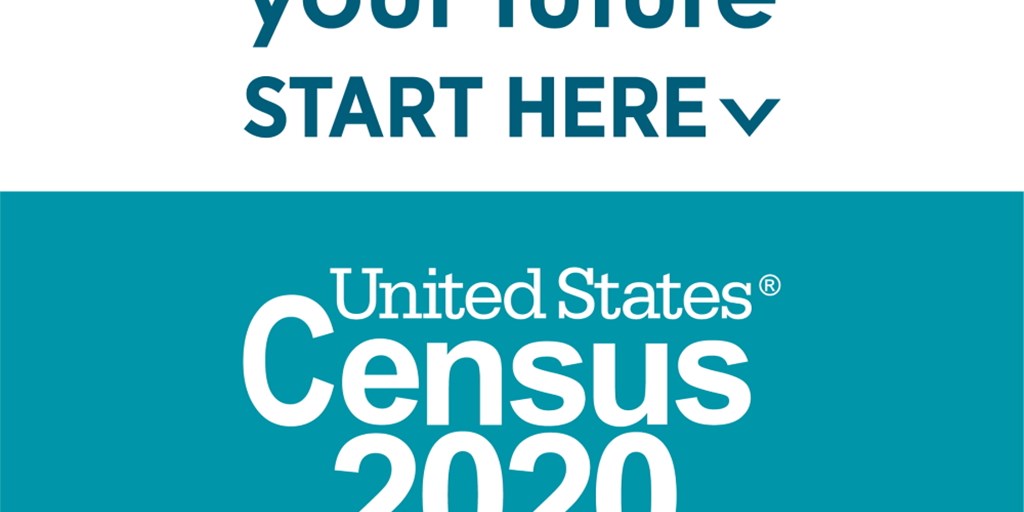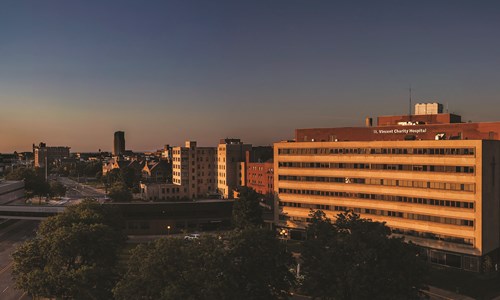The Census form is easy to complete. It can be filled out over the phone at (844) 330-2020, online at my2020census.gov or by mail using the paper form sent to each household. Given the realities of current physical distancing guidelines, these self-response options are key to reducing the need for in-person follow-up by Census Bureau employees, which began in mid-August. Let’s all do our part to ensure our communities receive the federal funds that will help support many important public programs for the next decade.
Information being collected right now for the 2020 Census will shape how hundreds of billions of dollars in federal funds flow into communities for the next 10 years. Counting everyone in a community helps leaders effectively plan for the future and informs funding decisions for critical public services. 2020 Census response rates vary significantly throughout Northeast Ohio. In the city of Cleveland, not even half (47.9%) of households have been counted yet. A Sunday opinion piece on Cleveland.com urged everyone to respond to the census before the September 30 deadline.
The full text of the opinion piece is below or available here.
A disastrous Census undercount looms. Act now to protect NE Ohio’s future: Brian G. Lane and August A. Napoli
A disastrous Census undercount looms. Act now to protect NE Ohio’s future: Brian G. Lane and August A. Napoli
The COVID-19 pandemic has upended almost every aspect of life as we know it. Caregivers and staff at hospitals, federally qualified health centers, and public health departments -- together with many other essential workers -- are leading an incredible response to heal those afflicted with the virus and protect those who are healthy.
Many of the immense resources required to fight this once-in-a-lifetime pandemic are distributed based on census data - clearly underscoring the importance of an accurate and complete count in the 2020 Census.
Information being collected right now for the 2020 Census will shape how hundreds of billions of dollars in federal funds flow into communities for the next 10 years. As shown in collaborative community health needs assessments throughout the region, our community faced enormous challenges before the pandemic hit – needs that have only intensified because of COVID-19.
Counting everyone in a community helps leaders effectively plan for the future and informs funding decisions for the following critical public services:
- Hospitals, federally qualified health centers, and health care services.
- Emergency and disaster response, fire, and public safety services.
- Schools, education programs, grants, and more.
- Roads, bridges, and other public transit and infrastructure projects.
- Businesses and economic development.
- Housing services and programs for special populations.
- Family and social services.
- Water and waste management.
Hospitals and federally qualified health centers recognize how vitally important 2020 Census data is to their capacity to support healthy individuals and communities for the next decade. Despite the strain of the pandemic, health care system representatives have been working together to coordinate Census outreach efforts and pivot strategies in light of COVID-19.
Here are just some of the ways the health care provider community is helping to ensure everyone is counted:
- Educating staff so that information can be shared with patients during telehealth visits.
- Sending patients reminders to complete the Census using online health management tools.
- Calling patients with language barriers to help them fill out their Census forms.
- Using the power of social media platforms to share Census information.
- Promoting completion of the Census using information printed on pharmacy bags.
- Recording “on hold” messages that emphasize the importance of the Census.
- Sharing information on food trays for patients who are hospitalized.
- Sending text messages to patients who have opted in to receiving communications.
Currently, 2020 Census response rates vary significantly throughout Northeast Ohio. Ashtabula (59.9%), Cuyahoga (64.1%) and Portage (69.9%) counties have the lowest 2020 Census response rates in the region, while Ashland (73.7%), Geauga (77.9%), Lake (76.4%), Lorain (73.3%), Medina (80.5%) and Summit (71.5%) counties have higher response rates.
In the city of Cleveland, not even half (47.9%) of households have been counted yet.
There’s still time to boost our response rate, but we need your help!
The Census form is easy to complete. It can be filled out over the phone at (844) 330-2020, online at my2020census.gov or by mail using the paper form sent to each household. Given the realities of current physical distancing guidelines, these self-response options are key to reducing the need for in-person follow-up by Census Bureau employees, which began in mid-August.
Hospitals, federally qualified health centers, public health and other providers will continue their heroic efforts to help us fight COVID-19. Let’s all do our part to ensure our communities receive the federal funds that will help support this work and many other important public programs for the next decade.
If your household has yet to complete a Census response, please do so before the new deadline of Sept. 30. Join us in making sure our region has the best possible chance at receiving the resources it needs to serve all who live here.
For help completing your Census form or locating needed information: Call (800) 923-8282.
Brian G. Lane is president and CEO of The Center for Health Affairs. August A. Napoli is president and CEO of the United Way of Greater Cleveland.
The Census form is easy to complete. It can be filled out over the phone at (844) 330-2020, online at my2020census.gov or by mail using the paper form sent to each household. Given the realities of current physical distancing guidelines, these self-response options are key to reducing the need for in-person follow-up by Census Bureau employees, which began in mid-August. Let’s all do our part to ensure our communities receive the federal funds that will help support many important public programs for the next decade.



